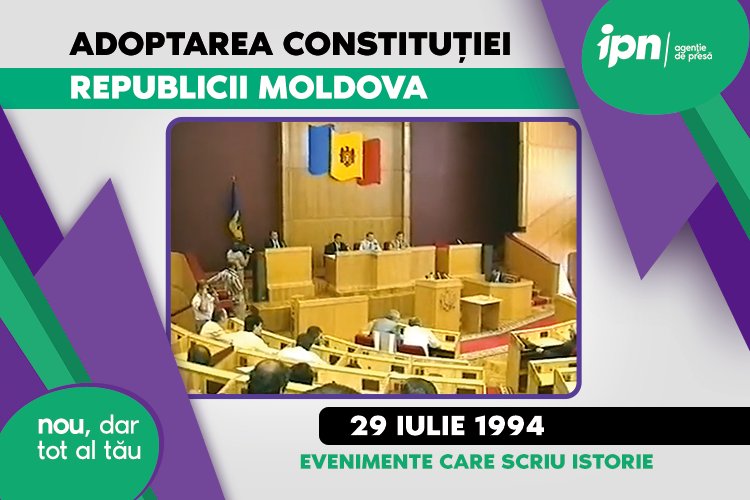The Constitution of the Republic of Moldova, adopted by the Parliament on July 29, 1994, is the main political-legal instrument that enshrined the definitive separation from the totalitarian regime, offering the country a new constitutional order. The supreme law entered into force on August 27, 1994, marking a decisive step in strengthening independence and the rule of law after the collapse of the Soviet Union.
After the dissolution of the Soviet Union, the Republic of Moldova declared its independence on August 27, 1991. During this transition period, the state functioned on the basis of provisional legislation and the Constitution of the Moldavian SSR of 1978. The act was amended to correspond to the new political situation, but a new Constitution reflecting the realities of a sovereign and democratic state was needed.
In 1992–1994, a Special Constitutional Commission consisting of MPs, lawyers, academics and representatives of civil society was created to draft a Constitution that would lay the foundations of the new legal order. The draft was debated both in Parliament and within society, at public consultations. There were differing opinions regarding the form of government, the status of the language, the autonomous status of the regions and the relationship with Romania.
The Constitution consists of a Preamble and 143 articles, divided into titles, covering all fundamental aspects of the organization of the state. Among the main provisions are: the form of government, according to which the Republic of Moldova is a parliamentary republic; sovereignty and independence – the state is sovereign, independent, unitary and indivisible; the official language – the state language is Romanian. It also includes provisions on the fundamental rights and freedoms, state power or territorial autonomy.
Over the years, the Constitution has been subject to changes. For example, in 2000, the way of electing the President changed from direct voting to voting in Parliament. The method of electing the President was revised and, in 2016, direct voting was restored, but not by amending the Constitution, but by a Constitutional Court decision.
The High Court also decided, in 2013, that the official language is Romanian, according to the Declaration of Independence, and in March 2024, the Parliament of the Republic of Moldova voted to enshrine in the Constitution the objective of European integration as an irreversible strategic orientation of the state.
The supremacy of the Constitution is guaranteed by the Constitutional Court of the Republic of Moldova.
The material is part of the IPN campaign “History – making Events”.
IPN Press Agency is an exemplary, free and independent media institution with a history of over 20 years. IPN is a media institution of public utility and a journalistic expression of the effort to consolidate democracy and modernization of the Republic of Moldova.
Every year, IPN produces over 9,000 news and journalistic materials in Romanian, Russian and English, organizes over 500 debates, broadcasts and press conferences, provides exclusive photos from over 500 public events and has the largest network of subscribers – state and local government institutions, embassies and international organizations, national and international media institutions, NGOs, etc.
IPN Agency manages the online platform ipn.md and is present on Facebook, Instagram, Telegram, X, TikTok, Youtube.
Come to IPN – where information is treated responsibly and everyone is free to speak.
Contact:
Tel.:068888261
